Immunsystem Booster
-
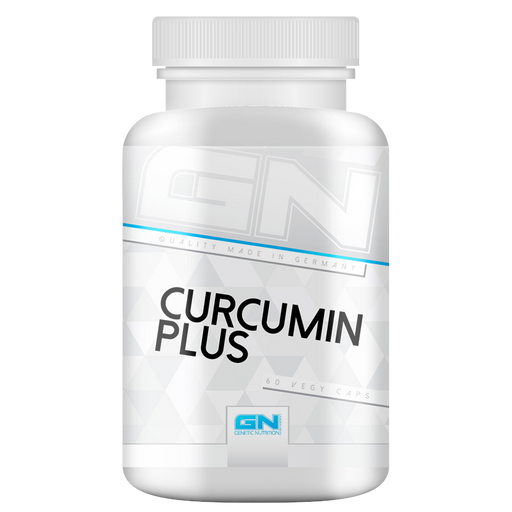 Jetzt 11% sparen
Jetzt % sparen
Original-Preis €19,90Original-Preis €19,90 - Original-Preis €19,90Original-Preis €19,90Aktueller Preis €17,71€17,71 - €17,71Aktueller Preis €17,71|/
Jetzt 11% sparen
Jetzt % sparen
Original-Preis €19,90Original-Preis €19,90 - Original-Preis €19,90Original-Preis €19,90Aktueller Preis €17,71€17,71 - €17,71Aktueller Preis €17,71|/Curcumin Plus · 60 Kapseln
GN Laboratories19 reviewsCurcumin bietet zahlreiche positive Effekte für den menschlichen Organismus. Immer mehr Menschen profitieren von Curcumin, wenn es um ihre Verdauun...
Vollständige Details anzeigenOriginal-Preis €19,90Original-Preis €19,90 - Original-Preis €19,90Original-Preis €19,90Aktueller Preis €17,71€17,71 - €17,71Aktueller Preis €17,71|/Jetzt 11% sparen Jetzt % sparen -
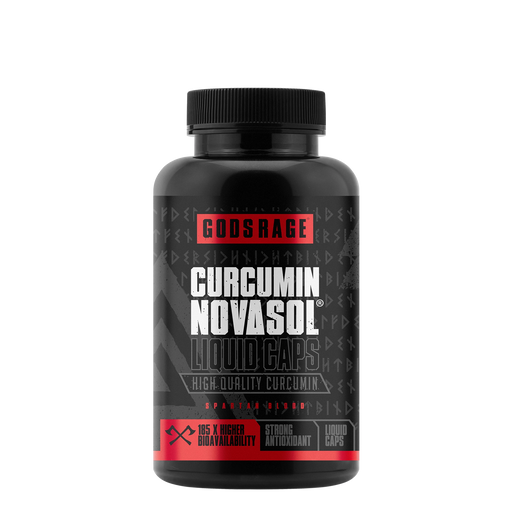 Jetzt 11% sparen
Jetzt % sparen
Original-Preis €21,90Original-Preis €21,90 - Original-Preis €21,90Original-Preis €21,90Aktueller Preis €19,49€19,49 - €19,49Aktueller Preis €19,49|/
Jetzt 11% sparen
Jetzt % sparen
Original-Preis €21,90Original-Preis €21,90 - Original-Preis €21,90Original-Preis €21,90Aktueller Preis €19,49€19,49 - €19,49Aktueller Preis €19,49|/Curcumin Novasol® · 60 Kapseln
Gods Rage28 reviewsCurcumin erfreut sich in letzter Zeit immer größerer Beliebtheit und ist einer der wohl interessantesten Wirkstoffe, wenn es um die Themen Verdauun...
Vollständige Details anzeigenOriginal-Preis €21,90Original-Preis €21,90 - Original-Preis €21,90Original-Preis €21,90Aktueller Preis €19,49€19,49 - €19,49Aktueller Preis €19,49|/Jetzt 11% sparen Jetzt % sparen -
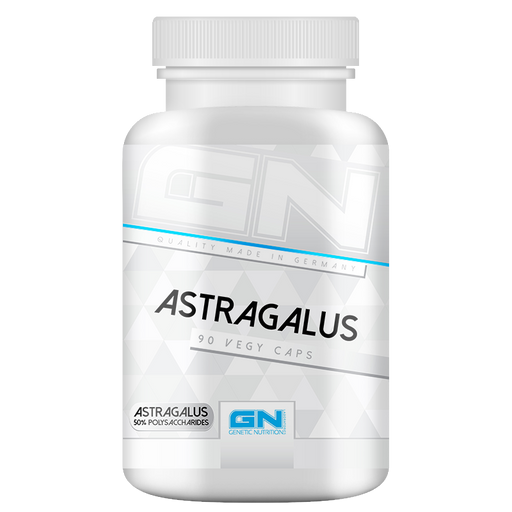 Jetzt 11% sparen
Jetzt % sparen
Original-Preis €18,90Original-Preis €18,90 - Original-Preis €18,90Original-Preis €18,90Aktueller Preis €16,82€16,82 - €16,82Aktueller Preis €16,82|/
Jetzt 11% sparen
Jetzt % sparen
Original-Preis €18,90Original-Preis €18,90 - Original-Preis €18,90Original-Preis €18,90Aktueller Preis €16,82€16,82 - €16,82Aktueller Preis €16,82|/Astragalus · 90 Kapseln
GN Laboratories7 reviewsBei Astragalus handelt es sich um Heilpflanze aus der traditionellen chinesischen Medizin, die eine große Bandbreite von sehr interessanten Gesundh...
Vollständige Details anzeigenOriginal-Preis €18,90Original-Preis €18,90 - Original-Preis €18,90Original-Preis €18,90Aktueller Preis €16,82€16,82 - €16,82Aktueller Preis €16,82|/Jetzt 11% sparen Jetzt % sparen -
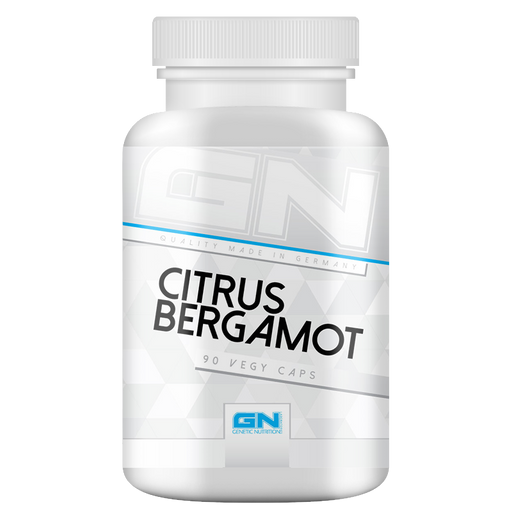 Ausverkauft
Original-Preis €29,90Original-Preis €29,90 - Original-Preis €29,90Original-Preis €29,90Aktueller Preis €26,61€26,61 - €26,61Aktueller Preis €26,61|/
Ausverkauft
Original-Preis €29,90Original-Preis €29,90 - Original-Preis €29,90Original-Preis €29,90Aktueller Preis €26,61€26,61 - €26,61Aktueller Preis €26,61|/Citrus Bergamot · 90 Kapseln
GN Laboratories8 reviewsCitrus Bergamot ist ein Wirkstoff, der sich im Laufe der letzten Jahre wachsender Beliebtheit unter Kraftsportlern erfreuen konnte. Es soll die Cho...
Vollständige Details anzeigenOriginal-Preis €29,90Original-Preis €29,90 - Original-Preis €29,90Original-Preis €29,90Aktueller Preis €26,61€26,61 - €26,61Aktueller Preis €26,61|/Ausverkauft -
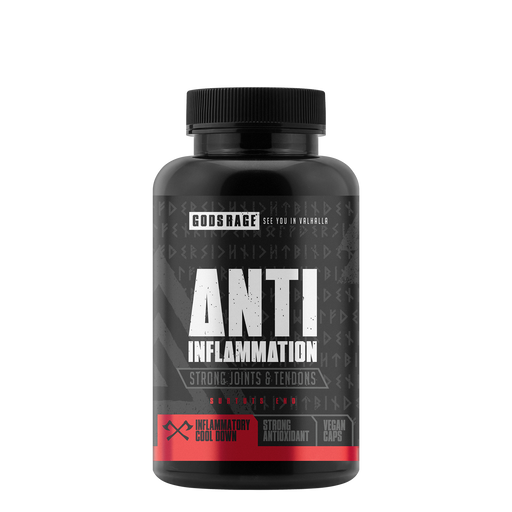 Jetzt 11% sparen
Jetzt % sparen
Original-Preis €19,90Original-Preis €19,90 - Original-Preis €19,90Original-Preis €19,90Aktueller Preis €17,71€17,71 - €17,71Aktueller Preis €17,71|/
Jetzt 11% sparen
Jetzt % sparen
Original-Preis €19,90Original-Preis €19,90 - Original-Preis €19,90Original-Preis €19,90Aktueller Preis €17,71€17,71 - €17,71Aktueller Preis €17,71|/Anti Inflammation · 60 Kapseln
Gods Rage29 reviewsWer im Gym an seine Grenzen geht und hart trainiert, der setzt seinen Körper großen Belastungen aus. Erhöhte Entzündungswerte sind da kaum zu verme...
Vollständige Details anzeigenOriginal-Preis €19,90Original-Preis €19,90 - Original-Preis €19,90Original-Preis €19,90Aktueller Preis €17,71€17,71 - €17,71Aktueller Preis €17,71|/Jetzt 11% sparen Jetzt % sparen -
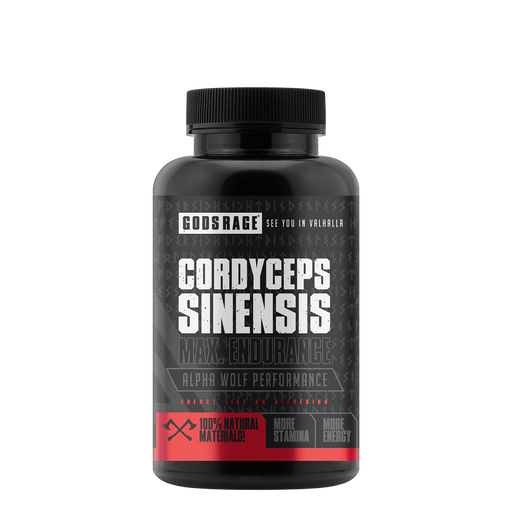 Ausverkauft
Original-Preis €18,90Original-Preis €18,90 - Original-Preis €18,90Original-Preis €18,90Aktueller Preis €16,82€16,82 - €16,82Aktueller Preis €16,82|/
Ausverkauft
Original-Preis €18,90Original-Preis €18,90 - Original-Preis €18,90Original-Preis €18,90Aktueller Preis €16,82€16,82 - €16,82Aktueller Preis €16,82|/Cordyceps Sinensis · 60 Kapseln
Gods Rage18 reviewsCordyceps ist ein Pilz, der seit vielen Jahren in der traditionellen chinesischen Medizin verwendet wird. Ihm wird eine positive Wirkung auf die Vi...
Vollständige Details anzeigenOriginal-Preis €18,90Original-Preis €18,90 - Original-Preis €18,90Original-Preis €18,90Aktueller Preis €16,82€16,82 - €16,82Aktueller Preis €16,82|/Ausverkauft -
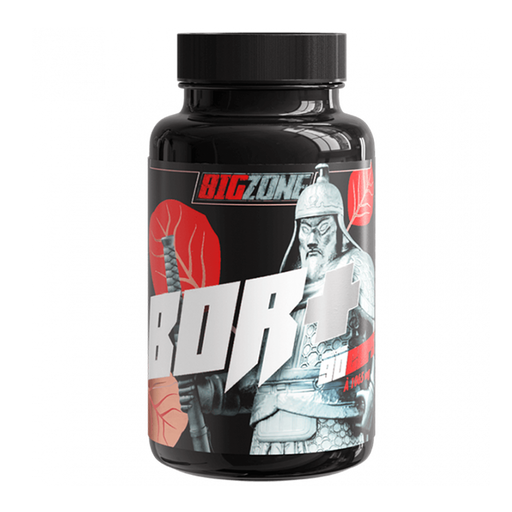 Jetzt 11% sparen
Jetzt % sparen
Original-Preis €26,90Original-Preis €26,90 - Original-Preis €26,90Original-Preis €26,90Aktueller Preis €23,94€23,94 - €23,94Aktueller Preis €23,94|/
Jetzt 11% sparen
Jetzt % sparen
Original-Preis €26,90Original-Preis €26,90 - Original-Preis €26,90Original-Preis €26,90Aktueller Preis €23,94€23,94 - €23,94Aktueller Preis €23,94|/Bor+ · 90 Kapseln
Big Zone1 reviewGenetische Voraussetzungen sind entscheidend für den Erfolg im Sport Optimale Genetik allein reicht jedoch nicht aus, harte Arbeit ist zusätzlich ...
Vollständige Details anzeigenOriginal-Preis €26,90Original-Preis €26,90 - Original-Preis €26,90Original-Preis €26,90Aktueller Preis €23,94€23,94 - €23,94Aktueller Preis €23,94|/Jetzt 11% sparen Jetzt % sparen -
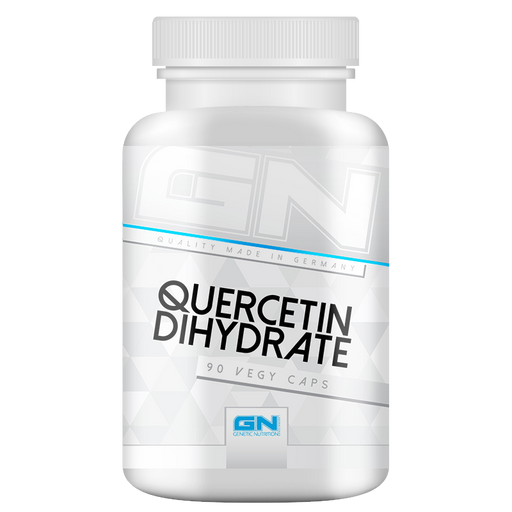 Jetzt 11% sparen
Jetzt % sparen
Original-Preis €19,90Original-Preis €19,90 - Original-Preis €19,90Original-Preis €19,90Aktueller Preis €17,71€17,71 - €17,71Aktueller Preis €17,71|/
Jetzt 11% sparen
Jetzt % sparen
Original-Preis €19,90Original-Preis €19,90 - Original-Preis €19,90Original-Preis €19,90Aktueller Preis €17,71€17,71 - €17,71Aktueller Preis €17,71|/Quercentin Dihydrate · 90 Kapseln
GN Laboratories1 reviewQuercetin ist ein Flavonoid, das eine bedeutende Rolle in zahlreichen Prozessen im menschlichen Körper spielen kann. Studien haben gezeigt, dass es...
Vollständige Details anzeigenOriginal-Preis €19,90Original-Preis €19,90 - Original-Preis €19,90Original-Preis €19,90Aktueller Preis €17,71€17,71 - €17,71Aktueller Preis €17,71|/Jetzt 11% sparen Jetzt % sparen -
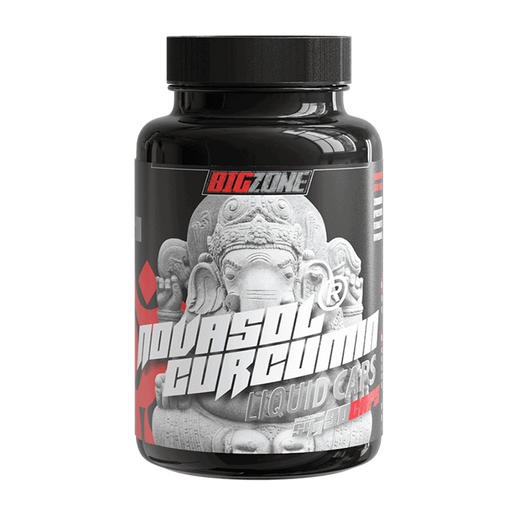 Jetzt 11% sparen
Jetzt % sparen
Original-Preis €24,90Original-Preis €24,90 - Original-Preis €24,90Original-Preis €24,90Aktueller Preis €22,16€22,16 - €22,16Aktueller Preis €22,16|/
Jetzt 11% sparen
Jetzt % sparen
Original-Preis €24,90Original-Preis €24,90 - Original-Preis €24,90Original-Preis €24,90Aktueller Preis €22,16€22,16 - €22,16Aktueller Preis €22,16|/NovaSol Curcumin · 90 Kapseln
Big Zone2 reviewsPatentiert NovaSol®-Liquid caps von Big Zone für überlegene Bioverfügbarkeit 90 vegane Kapseln mit jeweils 500mg hochkonzentriertem NovaSol®-Curcu...
Vollständige Details anzeigenOriginal-Preis €24,90Original-Preis €24,90 - Original-Preis €24,90Original-Preis €24,90Aktueller Preis €22,16€22,16 - €22,16Aktueller Preis €22,16|/Jetzt 11% sparen Jetzt % sparen -
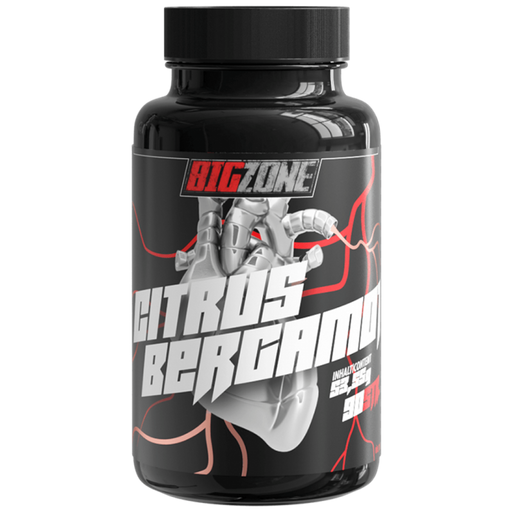 Ausverkauft
Original-Preis €29,90Original-Preis €29,90 - Original-Preis €29,90Original-Preis €29,90Aktueller Preis €26,61€26,61 - €26,61Aktueller Preis €26,61|/
Ausverkauft
Original-Preis €29,90Original-Preis €29,90 - Original-Preis €29,90Original-Preis €29,90Aktueller Preis €26,61€26,61 - €26,61Aktueller Preis €26,61|/Citrus Bergamot · 90 Kapseln
Big Zone1 reviewkann Gesamtcholesterin verbessern soll positiv auf Verhältnis zwischen LDL und HDL Cholesterin wirken 500mg pro Kapsel kann präventiv gegen Herzkr...
Vollständige Details anzeigenOriginal-Preis €29,90Original-Preis €29,90 - Original-Preis €29,90Original-Preis €29,90Aktueller Preis €26,61€26,61 - €26,61Aktueller Preis €26,61|/Ausverkauft -
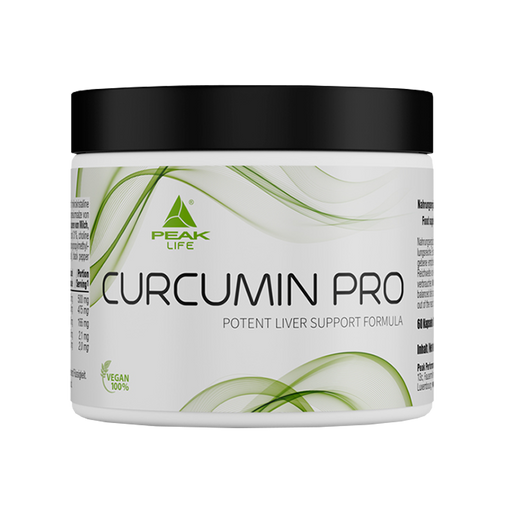 Jetzt 11% sparen
Jetzt % sparen
Original-Preis €15,90Original-Preis €15,90 - Original-Preis €15,90Original-Preis €15,90Aktueller Preis €14,15€14,15 - €14,15Aktueller Preis €14,15|/
Jetzt 11% sparen
Jetzt % sparen
Original-Preis €15,90Original-Preis €15,90 - Original-Preis €15,90Original-Preis €15,90Aktueller Preis €14,15€14,15 - €14,15Aktueller Preis €14,15|/Curcumin Pro · 60 Kapseln
PEAK1 reviewHochkonzentrierter 50:1 Kurkuma Extrakt (250 mg pro Kapsel) Optimal zur Einnahme bei Entzündungen oder Verletzungen Mit Piperin für eine optimale ...
Vollständige Details anzeigenOriginal-Preis €15,90Original-Preis €15,90 - Original-Preis €15,90Original-Preis €15,90Aktueller Preis €14,15€14,15 - €14,15Aktueller Preis €14,15|/Jetzt 11% sparen Jetzt % sparen -
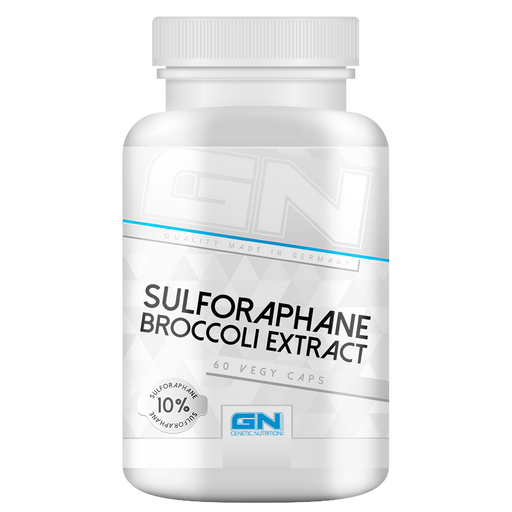 Jetzt 11% sparen
Jetzt % sparen
Original-Preis €16,90Original-Preis €16,90 - Original-Preis €16,90Original-Preis €16,90Aktueller Preis €15,04€15,04 - €15,04Aktueller Preis €15,04|/
Jetzt 11% sparen
Jetzt % sparen
Original-Preis €16,90Original-Preis €16,90 - Original-Preis €16,90Original-Preis €16,90Aktueller Preis €15,04€15,04 - €15,04Aktueller Preis €15,04|/Sulforaphane Broccoli Extract · 60 Kapseln
GN Laboratories2 reviewsDas gesunde Brokkoli Pflanzenextrakt, das die Herz-Kreislauf Gesundheit fördern, die Entgiftung des Körpers unterstützen und die Immunfunktion verb...
Vollständige Details anzeigenOriginal-Preis €16,90Original-Preis €16,90 - Original-Preis €16,90Original-Preis €16,90Aktueller Preis €15,04€15,04 - €15,04Aktueller Preis €15,04|/Jetzt 11% sparen Jetzt % sparen -
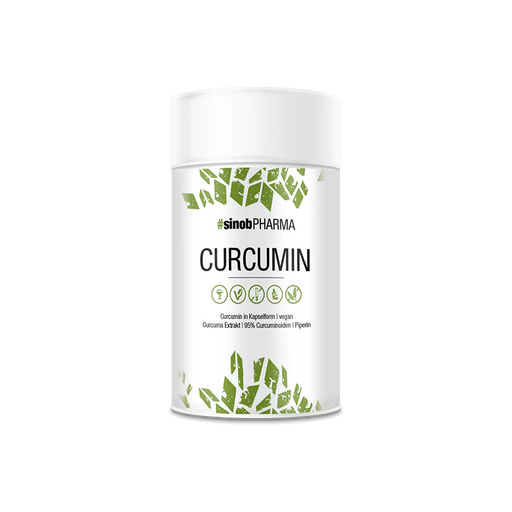 Jetzt 11% sparen
Jetzt % sparen
Original-Preis €17,90Original-Preis €17,90 - Original-Preis €17,90Original-Preis €17,90Aktueller Preis €15,93€15,93 - €15,93Aktueller Preis €15,93|/
Jetzt 11% sparen
Jetzt % sparen
Original-Preis €17,90Original-Preis €17,90 - Original-Preis €17,90Original-Preis €17,90Aktueller Preis €15,93€15,93 - €15,93Aktueller Preis €15,93|/Curcumin 95% · 60 Kapseln
#sinob1 reviewCurcumin, das charakteristische Aroma von Kurkuma, bietet gesundheitliche Vorteile. Unser Curcumin wird in Deutschland hergestellt und ist vegan....
Vollständige Details anzeigenOriginal-Preis €17,90Original-Preis €17,90 - Original-Preis €17,90Original-Preis €17,90Aktueller Preis €15,93€15,93 - €15,93Aktueller Preis €15,93|/Jetzt 11% sparen Jetzt % sparen -
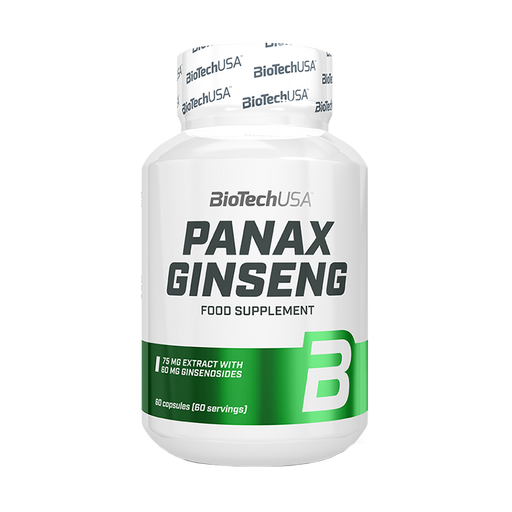 Ausverkauft
Original-Preis €13,90Original-Preis €13,90 - Original-Preis €13,90Original-Preis €13,90Aktueller Preis €12,37€12,37 - €12,37Aktueller Preis €12,37|/
Ausverkauft
Original-Preis €13,90Original-Preis €13,90 - Original-Preis €13,90Original-Preis €13,90Aktueller Preis €12,37€12,37 - €12,37Aktueller Preis €12,37|/Panax Ginseng · 60 Kapseln
Biotech USA1 reviewKoreanischer Ginseng ist eine bekannte Heilpflanze in Asien Die Wirkstoffe des Koreanischen Ginsengs sind Ginsenoside BioTechUSA Panax Ginseng ent...
Vollständige Details anzeigenOriginal-Preis €13,90Original-Preis €13,90 - Original-Preis €13,90Original-Preis €13,90Aktueller Preis €12,37€12,37 - €12,37Aktueller Preis €12,37|/Ausverkauft -
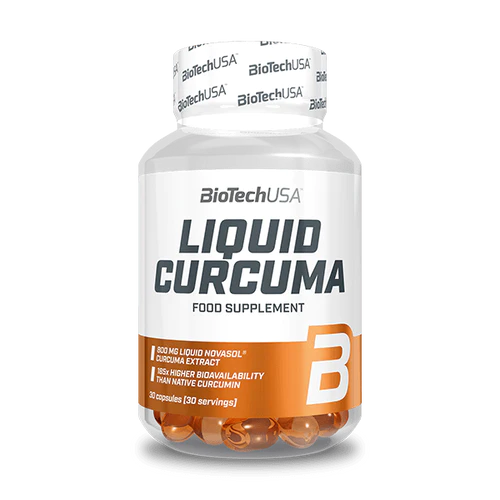 Jetzt 11% sparen
Jetzt % sparen
Original-Preis €16,90Original-Preis €16,90 - Original-Preis €16,90Original-Preis €16,90Aktueller Preis €15,04€15,04 - €15,04Aktueller Preis €15,04|/
Jetzt 11% sparen
Jetzt % sparen
Original-Preis €16,90Original-Preis €16,90 - Original-Preis €16,90Original-Preis €16,90Aktueller Preis €15,04€15,04 - €15,04Aktueller Preis €15,04|/Liquid Curcuma · 30 Kapseln
Biotech USANo reviewsEnthält NovaSOL® flüssigen Curcumin-Extrakt 185-mal höhere Bioverfügbarkeit als herkömmliches Curcumin Angereichert mit Vitamin D Praktischer 30-T...
Vollständige Details anzeigenOriginal-Preis €16,90Original-Preis €16,90 - Original-Preis €16,90Original-Preis €16,90Aktueller Preis €15,04€15,04 - €15,04Aktueller Preis €15,04|/Jetzt 11% sparen Jetzt % sparen
Krank zu sein ist wahrscheinlich eines der Dinge, das die meisten Menschen hassen. Egal ob es sich um eine lästige Erkältung oder eine Grippe handelt, würden die meisten alles geben, um zu verhindern krank zu werden. Vor diesem Hintergrund ist es kein Wunder, dass es keinen Mangel an Supplements gibt, die versprechen, den Anwender davor zu schützen, krank zu werden. Traurigerweise halten nicht all diese Produkte, was sie versprechen.
Stärkung des Immunsystems
Wenn es um eine Stärkung des Immunsystems geht, dann gibt es viele Ansätze, die der gesunde Menschenverstand nahelegt und denen sich die meisten bewusst sein werden. Hierzu gehören ausreichender Schlaf, die Vermeidung von exzessivem Stress, regelmäßiger Sport und eine ausgewogene Ernährung.
Doch wenn man ein ernsthafter Sportler ist, der hart trainiert, dann wird man wahrscheinlich schon am eigenen Leib erfahren haben, dass wiederholtes anstrengendes und/oder lange andauerndes Training das Risiko für Infektionen erhöhen kann. Sportwissenschaftler haben erkannt, dass zu viel anstrengendes und forderndes Training das Immunsystem unterdrücken kann (1). Wettkampfsportler und selbst durchschnittliche Fitnessenthusiasten wissen, dass es kaum etwas gibt, das das Erreichen der Fitnessziele stärker als Verletzungen oder Krankheiten behindern kann. Wenn man gesund bleibt, dann kann man ein periodisiertes Training absolvieren, das letztendlich in Verbesserungen von Kraft und sportlicher Leistungsfähigkeit resultiert. Aus diesem Grund sind Sportler und Trainier immer erpicht darauf neue Strategien zu entwickeln, um das Risiko für Infektionen und andere Krankheiten zu reduzieren.
Die besten Supplements zur Stärkung des Immunsystems
Die Frage danach, welche Supplements am besten geeignet sind, um das Immunsystem zu stärken, kommt recht häufig auf. Die Funktion des Immunsystems kann auf unterschiedlichen Wegen gemessen werden und darüber hinaus gibt es noch die unterschiedlichen Teile des Immunsystems, die als angeborene Immunität und erlangte Immunität bezeichnet werden. Wenn es darum geht, die Auswirkungen unterschiedlicher Supplements auf die Immunfunktion zu testen, kann es aufgrund dieser unterschiedlichen verwendeten Wege zur Messung der Immunfunktion schwierig werden, Studien direkt zu vergleichen. Unabhängig davon gibt es eine ganze Reihe von Nahrungsmitteln, Vitaminen, Pflanzenextrakten und Supplements, deren Fähigkeit, die Funktion des Immunsystems zu fördern, wissenschaftlich belegt ist.
Das Immunsystem stärkende Nahrungsmittel
Wenn es um Nahrungsmittel geht, dann gibt es nur wenige, deren positive Wirkung auf das Immunsystem wirklich wissenschaftlich belegt ist. Einige beliebte Beispiele wären Yoghurt und Hühnerbrühe. Ein wirklich erwähnenswertes beliebtes Supernahrungsmittel ist Spirulina. Spirulina ist für seinen hohen Gehalt und seine große Bandbreite an Mikronährstoffen bekannt und es gibt eine Vielzahl von wissenschaftlichen Studien, die die Wirkungen von Spirulina auf unterschiedliche Bereiche der Gesundheit untersucht haben. Wenn es um das Immunsystem geht, haben mehrere Studien gezeigt, dass eine Supplementation mit 5 bis 10 Gramm Spirulina pro Tag dabei helfen kann, die Funktion des Immunsystems, die Antioxidantienspiegel und die Trainingsleistung zu verbessern (2-4).
Das Immunsystem stärkende Vitamine
Das wahrscheinlich am häufigsten zur Stärkung des Immunsystems verwendete Vitamin ist Vitamin C. Doch auch wenn es eine Unmenge an Studien gibt, die die Wirkungen von Vitamin C bei einer gewöhnlichen Erkältung untersucht haben, gibt es noch immer noch keine abschließende Antwort auf die Frage, ob Vitamin C tatsächlich eine Erkältung verhindern kann oder ob es die Dauer und die Schwere einer Erkältung reduzieren kann (5). Frühere Untersuchungen, die die Faktoren untersucht haben, die die Effektivität einer Vitamin C Supplementation bestimmen, legen nahe, dass die Dosis und das Alter der Person wichtige Faktoren darstellen könnten, wobei Dosierungen oberhalb von 2 Gramm sehr viel effektiver sind und Kinder bessere als Erwachsene auf Vitamin C reagieren. Trotz aller Kontroversren hat sich eine Vitamin C Supplementation als sehr sicher erwiesen, so dass die Vorzüge möglichen Nachteilen überwiegen.
Quercetin und die Immunfunktion
Eine andere Substanz, die durch sehr viel glaubhafte Wissenschaft unterstützt wird und die man in weiterem Sinn als Vitamin klassifizieren könnte, ist das Flavonoid Quercetin. Quercetin ist das in Obst und Gemüse am häufigsten vorkommende Flavonoid. Es gab in letzter Zeit eine Vielzahl von Studien, die gezeigt haben, dass Quercetin nicht nur die Immunfunktion bei Sportlern signifikant verbessern kann, sondern darüber hinaus auch Vorzüge bezüglich der Leistungsfähigkeit, der Körperkomposition und der antioxidativen Reaktion auf sportliches Training besitzt (6, 7). Vitamin C und Quercetin wirken synergistisch zusammen und es konnte gezeigt werden, dass diese Kombination Vorzüge besitzt, die über die Kombination der Einzelwirkungen beider Substanzen hinaus geht (8, 9).
Das Immunsystem stärkende Pflanzenextrakte
Wenn man den Durchschnittsbürger danach fragt, welches Pflanzenextrakt er mit einer Verbesserung des Immunsystems in Verbindung bringen würde, dann wird man fast immer Echinacea als Antwort bekommen. Dies liegt daran, dass Echinacea die Pflanze ist, die am besten und häufigsten bezüglich ihrer Fähigkeit, das Immunsystem zu stärken, untersucht wurde. Doch selbst nach all diesen Untersuchungen gibt es unter Wissenschaftlern noch immer keinen wirklichen Konsens darüber, ob Echinacea wirklich die Häufigkeit des Auftretens, die Symptome oder die Dauer einer gewöhnlichen Erkältung reduzieren kann (10). Ein Teil dieser Verwirrung könnte zumindest Teilweise durch die extreme Bandbreite an Typen und Stärken von Echinacea Extrakten erklärbar sein, die in unterschiedlichen Studien untersucht wurden. Einige aktuellere Studien, die mit hoch standardisierten und qualitativ hochwertigen Echinacea Extrakten durchgeführt wurden, zeigen ohne einen Zweifel, dass Echinacea in der Tat die Funktion des Immunsystems stärkt (11, 12).
Das Immunsystem stärkende Supplements
Viele Sportsupplements behaupten von sich, dass sie die Funktion des Immunsystems stärken könne. Eines der wenigen dieser Supplements, dessen Wirkung durch solide Wissenschaft unterstützt wird, ist Colostrum. Studien, deren Probanden von Ausdauersportlern bis hin zu Kraftsportlern reichten, haben gezeigt, dass Colostrum Supplements dabei helfen können, die Häufigkeit des Auftretens weit verbreiteter Infektionen wie z.B. Infektionen der oberen Atemwege zu reduzieren (13). Colostrum ist im Grunde genommen ein Protein, weshalb es Wissenschaftler schwer hatten zu erklären, wie es genau wirkt, da Colostrum eigentlich wie alle anderen Proteine auch im Verdauungstrakt in seine Bestandteile aufgebrochen werden sollte.
Doch Colostrum ist bekannt dafür, dass es einen hohen Gehalt an bioaktiven Verbindungen aufweist und Wissenschaftler glauben heute, dass einige dieser Verbindung der Verdauung entgehen und deshalb auch nach dem Verzehr biologisch aktiv bleiben (13). Der einzige Nachteil an Colostrum ist, dass es nicht billig ist und zusätzlich hierzu zeigen die meisten Studien, dass man größere Mengen verwenden muss, um eine Wirkung zu sehen. Die niedrigste Dosierung, die bei einer Studie verwendet wurde, die eine positive Auswirkung auf Leistungsfähigkeit und Immunfunktion zeigte, lag bei 10 Gramm (14). Bei den meisten anderen Studien wurden sogar zwischen 20 und 60 Gramm verwendet (14). Bei solchen Dosierungen wird eine tägliche Supplementation mit Cholostrum sehr teuer.
Fazit
Zusammenfassend kann man sagen, dass gesund und frei von Infektionen zu bleiben etwas ist, das von jedem Sportler unabhängig davon, ob es sich um einen Profisportler oder einen Freizeitsportler handelt, hoch geschätzt wird. Es gibt eine Vielzahl von Supplements, die eine Verbesserung der Funktion des Immunsystems und eine bessere Widerstandsfähigkeit gegenüber Infektionen versprechen. Leider ist es nur allzu leicht unnötig Geld für Immunsystem Supplements zu verschwenden, deren Wirkung nicht wissenschaftlich belegt ist, was insbesondere dann gilt, wenn man nicht auf die Grundlagen wie Schlaf, Stressbewältigung und Ernährung achtet.
Besonders bei Leistungssportlern und anderen intensiv trainierenden Sportlern kann das häufig täglich ausgeführte intensive Training die Funktion des Immunsystems beeinträchtigen und so das Risiko für Infektionen erhöhen. Bei diesem Personenkreis können bestimmte Supplements, Nahrungsmittel und Vitamine signifikante Vorzüge bieten, wenn des darum geht, gesund zu bleiben. Wenn man den gesunden Menschenverstand verwendet, wird man erkennen, dass ein ausgewogener Ansatz, der Lebensstil, Training und Supplementation umfasst, der beste Weg ist, gesund zu bleiben.
Referenzen:
- Gunzar W, et al. Exercise-Induced Immunodepression in Endurance Athletes and Nutritional Intervention with Carbohydrate, Protein and Fat—What Is Possible, What Is Not? Nutrients. 2012 September; 4(9): 1187–1212.
- Selmi C, et al. The effects of Spirulina on anemia and immune function in senior citizens. Cell Mol Immunol. 2011;8(3):248-254.
- Park HJ, et al. A randomized double-blind, placebo-controlled study to establish the effects of spirulina in elderly Koreans. Ann Nutr Metab. 2008;52(4):322-8.
- Kalafati M, et al. Ergogenic and antioxidant effects of spirulina supplementation in humans. Med Sci Sports Exerc. 2010;42(1):142-151.
- Hemilla H & Chalker E. Vitamin C for preventing and treating the common cold. Cochrane Database Syst Rev. 2013 Jan 31;1:CD000980.
- Pelletier DM, et al. Effects of quercetin supplementation on endurance performance and maximal oxygen consumption: a meta-analysis. Int J Sport Nutr Exerc Metab. 2013;23(1):73-82.
- Glesson M. Nutritional Support to Maintain Proper Immune Status during Intense Training. Nestle Nutr Inst Workshop Ser. 2013;75:85-97.
- Askari G, et al. Does quercetin and vitamin C improve exercise performance, muscle damage, and body composition in male athletes? J Res Med Sci. 2012;17(4):328-31.
- Askari G, et al. Quercetin and vitamin C supplementation: effects on lipid profile and muscle damage in male athletes. Int J Prev Med. 2013;4(Suppl 1):S58-62.
- Linde K, et al. Echinacea for preventing and treating the common cold. Cochrane Database Syst Rev. 2006 Jan 25;(1):CD000530.
- Woelkart K, et al. Bioavailability and pharmacokinetics of Echinacea purpurea preparations and their interaction with the immune system. Int J Clin Pharmacol Ther. 2006 Sep;44(9):401-8.
- Schapowal A. Efficacy and safety of Echinaforce® in respiratory tract infections. Wien Med Wochenschr. 2013 Feb;163(3-4):102-105.
- Davison G. Bovine colostrums and immune function after exercise. Med Sport Sci. 2013;59: 62–69.
- Shing CM, et al. The influence of bovine colostrum supplementation on exercise performance in highly trained cyclists. Br J Sports Med 2006;40:797–801.
- Hemilla H. Vitamin C supplementation and common cold symptoms: factors affecting the magnitude of the benefit. Med Hypotheses. 1999 Feb;52(2):171-8.















